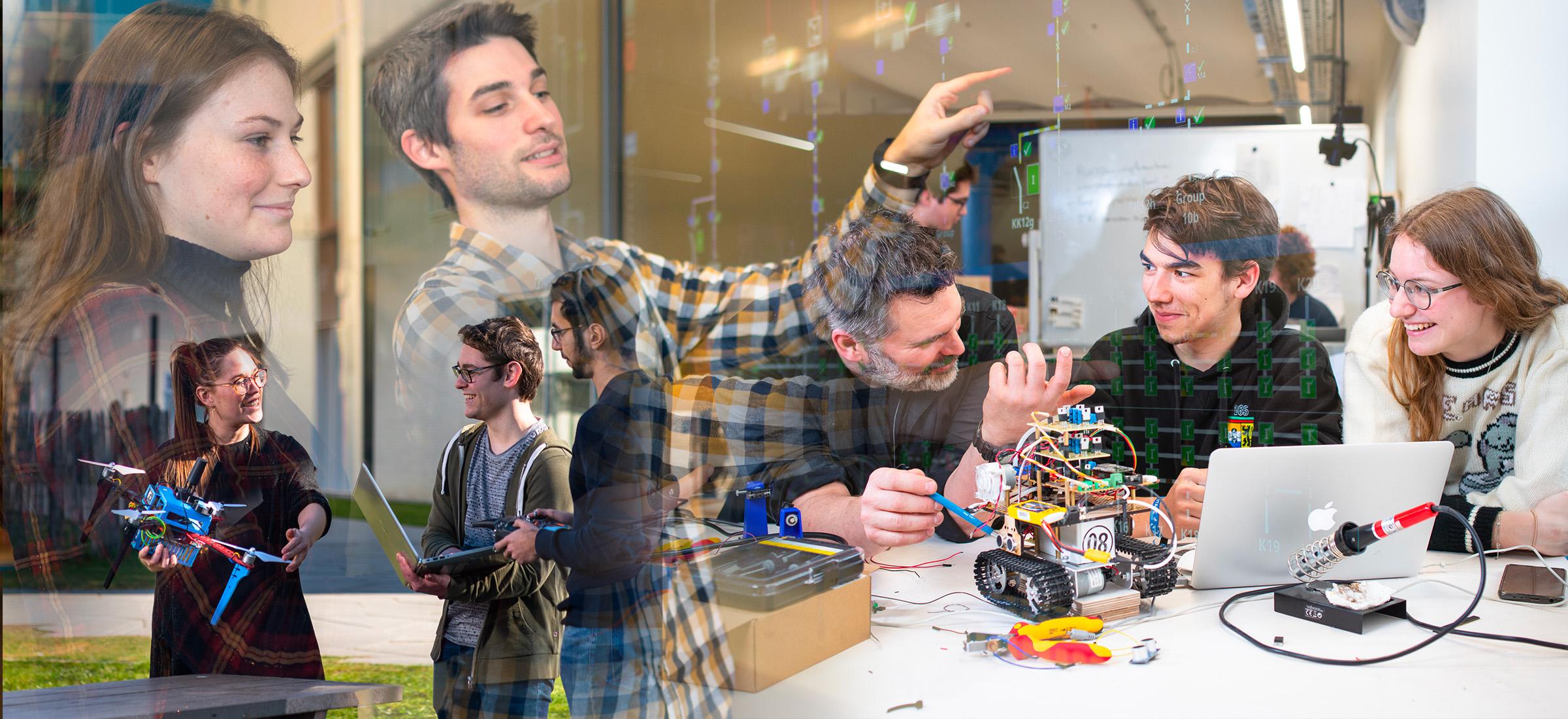
Educational quality of the programme
At VUB the quality of the education takes centre stage. This isn't something we say lightly: we scrutinise our programmes regularly to align them with changing student needs in a rapidly changing society. Additionally, the engineering programmes in Flanders are audited by an external commission: Commission des Titres d’Ingénieur (CTI, France).
This public information is part of VUB’s quality assurance system and was ratified by the Academic Council on 19/06/2023.
Strenghts of the programme
- Programme meets new challenges: A continuous dialogue between academics, industry and students leads to a very relevant curriculum, which meets the challenges of today’s society.
- International context: by offering an English taught master, the programme attracts a great variety of international students which creates a multicultural learning environment.
- Industrial internship: the programme facilitates and encourages students to perform an industrial internship. Students can benefit from the broad international network the interuniversity programme offers and choose an internship abroad.
.
Opportunities
- VUB being located in Brussels offers a unique opportunity to attract students from all over the world. With more attention to targeted communication, including a social media strategy, recruitment of talented students would increase.
Current developments
- By comparing, through a benchmarking, the various majors to similar programmes both in Belgium and abroad, Electromechanical Engineering has updated its majors. The programme will now monitor the changes, by retrieving input from students and the work field, by monitoring the new enrolments, study success rates, etc. to make adjustments when necessary.
- Throughout the programme, sustainability is an important aspect. However, the visibility of sustainability in the curriculum can still be improved. The programme aims to achieve this through explicitly communicating where this subject is discussed.
Where do we get this information from?
As institution we routinely ask our students to give their honest opinion about the study programme during their academic career. We also consult our professors and assistants and gauge the expectations in the future field of work. We receive structured feedback from our former students and compare our programmes with others at home and abroad. Through a Peer Review every six years an expert panel endorses the programme’s assets and can recommend some actions. Lastly, the Education Quality Council takes a formal decision about the quality and functioning of a programme.
Quality Cycle
Each programme follows a six-year quality cycle. The timeline below shows the schedule for this particular programme.
